Roh Moo Hyun
16th President of the Republic of Korea
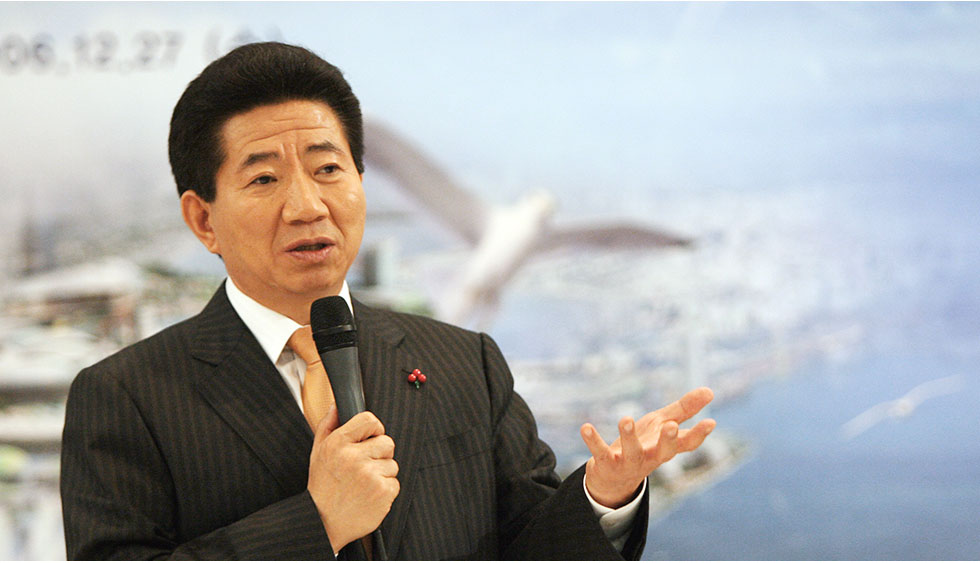
ROH MOO HYUN (1946-2009)
Roh Moo Hyun was born on September 1, 1946 in Bongha Village of Jinyeong-eup, Gimhae-si, Gyeongnam Province. After graduating from Busan Commercial High School, he passed the bar exam and served on the court bench briefly. With an experience of representing defendants in the Burim Incident that was manipulated as a “communist conspiracy” by the military authoritarian regime, he began his career as a human rights lawyer and dedicated himself to the democratic movement.
In 1988, he entered politics as an elected member of the 13th term of the Korean National Assembly. He came to the national limelight as the “Star of Public Hearings” while serving as a member of the National Assembly Special Investigation Committee on the Political Corruption of the 5th Republic. Upon the merger of the three political parties in 1990 (the leading party and the two opposing parties) that thwarted the elimination of authoritarianism and uncovered politics of regional discrimination, he dissented and spearheaded a coalition of the opposition camp to launch the Democratic Party. Putting an end to politics of regional discrimination and bringing the nation together became the missions of Roh Moo Hyun as a statesman.
Running under the Democratic Party flag, he lost his seat in Busan in the 1992 national election for the 14th term of the National Assembly, the 1995 local election for the mayor of Busan, and the 1996 national election for the 15th term of the National Assembly.
He then won the 1998 interim election for a seat in the National Assembly representing the Jongno-gu of Seoul but chose to run again in Busan and lost in the 2000 national election for the 16th term of the National Assembly, declaring his commitment to putting an end to politics of regional discrimination. The general public gave him with the nickname of “Fool Roh Moo Hyun” for his challenges and the first fan club of a politician in the Korean history was born as “Nosamo, an abbreviation of the association (“mo”) of those who love (“sa”) Roh(“No”) Moo Hyun.
Subsequently, he was appointed as the Minister of Maritime Affairs and Fishery in 2000 during the term of the People’s Government under President Kim Dae Jung. In 2002, he was nominated as the presidential candidate in the open primary of the Millennium Democratic Party and ultimately won the election for the 16th President.
During his term of office, he endeavored to give back power to the people and brought reform across the board with his leadership of anti-authoritarianism, participation, autonomy and decentralization. Upon leaving office on February 25, 2008, he retired to his hometown unlike his predecessors and worked hard with the community residents to build a village drawing people to live by focusing on eco-friendly ecological farming. He passed away in this hometown of Bongha Village on May 23, 2009.
“Based on reform and coalition, the new government will proceed to open democracy going together with the people, balanced development for society of living together, and the age of peace and prosperity in Northeast Asia. To achieve such goals, I will place the priority of leading the new government in principles and integration, fairness and transparency, dialogue and compromise, and decentralization and autonomy.” - Inauguration Speech of the 16th President on February 25, 2003
The Participatory Government was launched in 2003 with the inauguration of the 16th President Roh Moo Hyun against the backdrop of his desire to empower the public as the true holder of power and to implement substantive democracy. The term of “Participatory” shows such desire to open the era of the truly empowered citizens and to promote participatory democracy.
In the five years from 2003 to 2008, the Participatory Government made every effort to achieve an era of triumphant public as principles prevail and citizens are empowered; an era of a new soaring progress based on a virtuous cycle of economy and welfare and growth and sharing; an era of integration and balance by eliminating social monopoly and centralization which to steer away from conflicts and isolation; and an era of peace and prosperity in Northeast Asia based on the qualitative improvement of South-North Korean relations.
The Participatory Government repudiated the “czar president” system based on authoritarianism, neutralized government agencies with power, and improved social transparency by eliminating corrupt politics, regulated economy, and collusion of politics and journalism. Its economic policies designed for long-term fundamental improvements and principles resulted in substantive growth, higher competitiveness, and the arrival of an era of per capita income of 20,000 U.S. Dollars. It endeavored to overcome social bipolarization and to expand social safety net by increasing the welfare budget, and to prepare for the future society with “Vision 2030” that presents the mid- and long-term national goals. Balanced national development, local autonomy and decentralization, and the government reform became actively pursued during this period. Also, it worked hard to improve the international relations and security environment surrounding the Korean Peninsula through the peaceful resolution of the North Korean nuclear issue, balanced diplomacy of practicality, and cooperative yet independent national defense. Its North Korea policy based on the principles of trust, exchange and cooperation led to the 2nd South-North Korea Summit in 2007 and the “Declaration for the Development of Inter-Korea Relationship and Peaceful Prosperity (known as the October 4 Declaration).
Citizens who look far, citizens who fulfill their duties, and citizens who act are the true holders of power. - Special lecture to innovative venture entrepreneurs on October 18, 2007
Fighting against regional discrimination and fighting against opportunism are the two big challenges facing me as I engage in politics. This is why I repeatedly stated “principles and integration” during the presidential election campaign. In my political career, I have adhered to principles quite strictly but have also been willing to sacrifice any other values for the sake of integration. - <Successes and Frustrations>
It must be the market for the people. The market also exists within the community. It must be the market for the welfare and happiness of all, not one destroying such community. In this regard, I use the phrase “Saramsanun Sesang” frequently even now when I sign a visitor book. - Writing contributed to Statements of People in Power published by Frankfurter Allgemeine Zeitung on October 15, 2007
The final safeguard of democracy is the organized power of the conscious citizens. This is our future. - Congratulatory message to the 8th general meeting of Nosamo on June 16, 2007
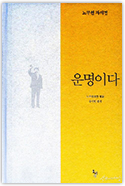
- It Is FateCompiled by The Roh Moo Hyun Foundation, 2010 A posthumous autography published on the 1st anniversary of the passage of President Roh Moo Hyun. Based on the books, unpublished manuscripts, memos, letters, etc. written by the late President as well as his interviews and oral commentaries, it describes chronologically his entire life from birth to death. Former Minister of Health and Welfare Yoo Si Min of the Participatory Government undertook arrangement.
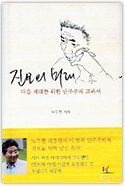
- Future of the ProgressiveAuthored by Roh Moo Hyun, 2009 Final legacy of President Roh Moo Hyun for the future of democracy and progressivism in Korea that offers vivid experience of his vigorous awareness for citizenship. A detailed account of President Roh’s concerns and contemplations about a nation that is desirable to its people, especially the future generation of children.
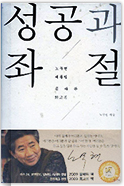
- Successes and FrustrationsAuthored by Roh Moo Hyun, 2009 An official memoir of President Roh Moo Hyun published after his death that is left unfinished although he personally arranged the headings and overall organization. He tells candidly stories of his frustrations and failures as someone that never lived as a coward, which is well summarized in a heading entitled “my times never went around me.”
The Roh Moo Hyun Foundation
Building on Roh Moo Hyun’s Principles and Power of Conscious Citizens
The Foundation was established on September 23 2009 to uphold and raise public awareness of the values, philosophy and achievements of Roh Moo Hyun, the 16th President of the Republic of Korea. It is a non-profit foundation as well as a public interest entity supported by voluntary contributions of individual citizens. The first donation of October 17, 2009 was followed by many others and nearly 43,000 citizens support the Foundation as of May 2015.
“Saramsanun Sesang” incorporates the vision of President Roh Moo Hyun, who dreamed of the society where people are respected for being who they are, the society where people can live as human beings. The Roh Moo Hyun Foundation is upholding his vision through various programs to put together citizens’ power and to offer opportunities to participate. The Foundation operates memorial facilities, undertake the construction of the presidential memorial hall, and hosts annual memorial services at Bongha Village, carries projects to compile and research historical records, offers educational programs through the Roh Moo Hyun Citizen School, and implements coalition, sharing and scholarship programs.
Beautiful Bongha Holding Roh Moo Hyun’s Dreams
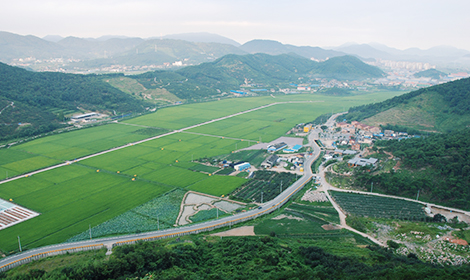
Bongha Village in Gimhae City, Gyeongnam is a place closely showing the life and dreams of President Roh Moo Hyun. Born and raised in Bongha Village, he was the first president of Korea who retired to his hometown upon leaving office. As former President in Bongha Village, he committed himself to ecological farming, building a village that draws people to live, and research and writing on the topics of democracy and progressivism.
At the graveyard of President Roh Moo Hyun in Bongha Village, approximately 15,000 stone panels where nearly 18,000 people engraved personal notes of remembering him cover the ground leading to his resting place. Visitors are also greed by the modest home where he was born and lived until the age of 8, the house he lived after retirement from office until he passed away, the memorial facility displaying his personal artifacts and records, pro-environment ecological park, walking passages and trails,, and Hwapocheon, which is the biggest stream-type swamp in Korea. Nearly 730,000 people visit Bongha Village annually since President Roh passed away in 2009.
- 73 Changdeokgung-gil, Jongno-gu, Seoul, Republic of Korea (03057)
- 82-2-1688-0523
- 82-2-713-1219
- www.knowhow.or.kr
- http://archives.knowhow.or.kr
- 135 Bongha-ro, Jinyeong-eup, Gimhae-si,
Gyeongsangnam-do, Republic of Korea(50856) - 82-55-344-1004
- 82-55-344-1007
- 08:00~19:00(summer)/08:00~18:00(winter)
Copyright (C) 사람사는세상 노무현재단 ALL RIGHTS RESERVED.